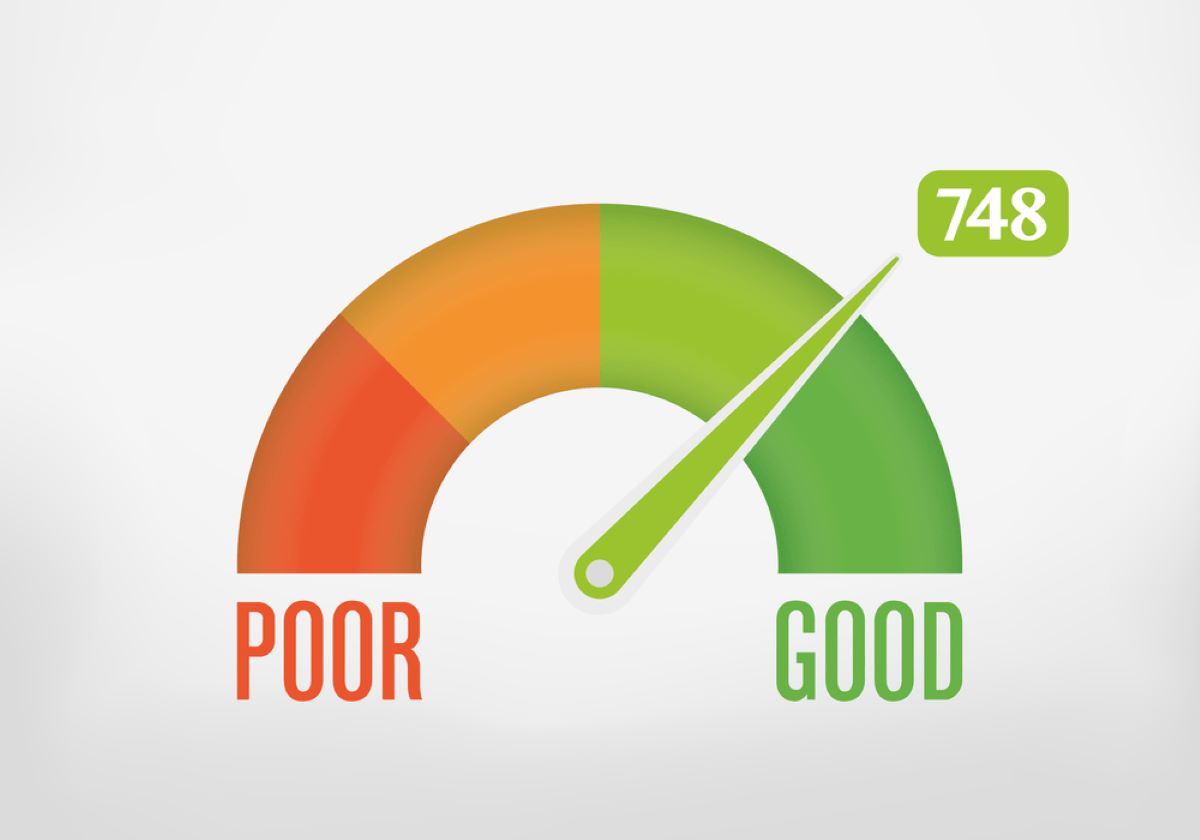

Finance
What Is A 657 Credit Score
Published: October 21, 2023
Wondering what a 657 credit score means for your finances? Find out how this credit score impacts your ability to borrow money and make important financial decisions.
(Many of the links in this article redirect to a specific reviewed product. Your purchase of these products through affiliate links helps to generate commission for LiveWell, at no extra cost. Learn more)
Table of Contents
Introduction
When it comes to managing our finances, credit plays a vital role. One of the key components in the realm of credit is the credit score. A credit score is a numerical representation of an individual’s creditworthiness and is used by lenders to assess the risk of lending money. It helps determine the terms and conditions of loans, credit cards, and other financial products.
In this article, we will delve into the topic of credit scores, with a specific focus on a 657 credit score. We will explore what it means to have a 657 credit score, how it can impact your borrowing ability, and provide insights on how to improve this score if necessary.
Understanding credit scores is essential as they can greatly influence our financial well-being. By having a clear grasp of what a 657 credit score entails, you can make informed decisions about your borrowing options and take the necessary steps to improve your creditworthiness.
So, let’s dive into the world of credit scores and explore the intricacies of a 657 credit score.
Understanding Credit Scores
Before we discuss the specifics of a 657 credit score, it is important to have a basic understanding of credit scores in general. Credit scores are numerical representations that summarize an individual’s creditworthiness and financial history. They are used by lenders, credit card companies, and other financial institutions to assess the risk involved in extending credit to an individual.
The most commonly used credit scoring model is the FICO score, which ranges from 300 to 850. The higher the score, the better the creditworthiness of the individual. Credit scores are determined by analyzing various factors, including payment history, credit utilization, length of credit history, types of credit, and new credit inquiries.
A credit score provides lenders with a quick snapshot of an individual’s creditworthiness and helps them assess whether they are likely to repay their debts on time. A higher credit score indicates a lower risk borrower, making it easier to secure loans and obtain favorable terms and conditions.
It’s important to note that different lenders and financial institutions may have their own credit scoring models and criteria for evaluating creditworthiness. However, the FICO score is widely used and provides a standardized benchmark for understanding credit scores.
Now that we have a basic understanding of credit scores, let’s explore what a 657 credit score signifies and how it can impact an individual’s financial life.
What Is a 657 Credit Score?
A 657 credit score falls within the fair credit range on the FICO scoring scale. While it may not be considered excellent, it is still a respectable score that demonstrates a decent level of creditworthiness. Lenders may view a 657 credit score as an indication of some financial responsibility, but it may still present some challenges in obtaining loans or credit cards with favorable terms.
With a 657 credit score, individuals may find it slightly more difficult to secure certain types of loans, such as mortgages or auto loans, as they may be deemed slightly higher risk borrowers. However, it does not necessarily mean that all doors are closed. Many lenders are willing to work with individuals in the fair credit range and may still offer loans albeit with slightly higher interest rates or less favorable conditions.
In addition to influencing loan approval and terms, a 657 credit score can also affect other aspects of financial life. For example, it could impact the ability to rent an apartment or secure utility services. Landlords often consider credit scores when evaluating potential tenants, and a lower score may raise concerns about the ability to make timely rental payments.
It’s important to note that while a 657 credit score is not ideal, it is not a permanent situation. With responsible financial habits and proper credit management, individuals can work towards improving their credit score over time.
Now that we have a better understanding of what a 657 credit score signifies, let’s explore the factors that can influence this credit score range.
Factors Influencing a 657 Credit Score
A 657 credit score is determined by several factors that reflect an individual’s credit history and financial behavior. Understanding these factors can help individuals identify areas for improvement and take steps to enhance their creditworthiness. Here are some key factors that influence a 657 credit score:
Payment History: Your payment history is one of the most crucial factors affecting your credit score. It accounts for about 35% of your score. Consistently making on-time payments will have a positive impact on your credit score, while late or missed payments can significantly lower it.
Credit Utilization: This refers to the percentage of your available credit that you are currently utilizing. Keeping your credit utilization ratio below 30% is generally recommended. Higher utilization rates can negatively impact your credit score.
Length of Credit History: The length of time you’ve had credit accounts is another influential factor. A longer credit history demonstrates stability and responsible credit management. It accounts for around 15% of your credit score.
Mix of Credit: The types of credit accounts you have, such as credit cards, mortgages, or loans, can also affect your credit score. Having a diverse mix of credit accounts can demonstrate your ability to manage various types of debt responsibly.
New Credit Inquiries: Whenever you apply for new credit, a hard inquiry is placed on your credit report, which can temporarily lower your score. Multiple inquiries within a short period can raise concerns for lenders and negatively impact your credit score.
Negative Items: Late payments, collections, bankruptcies, and other negative marks on your credit report can have a significant impact on your credit score. It’s crucial to address and resolve any negative items as they can remain on your credit report for several years.
By understanding these factors, individuals with a 657 credit score can identify areas for improvement and focus on building a stronger credit profile. The next section will explore how a 657 credit score can impact an individual’s ability to borrow money.
How a 657 Credit Score Impacts Borrowing
A 657 credit score can have an impact on an individual’s ability to borrow money. While it falls within the fair credit range, it may present some challenges when seeking certain types of loans or credit cards. Here’s how a 657 credit score can impact borrowing:
Limited Loan Options: With a 657 credit score, individuals may find their loan options more limited compared to those with higher credit scores. Some lenders may be hesitant to offer loans or may impose stricter terms, such as higher interest rates or more substantial down payments.
Higher Interest Rates: Lenders consider credit scores when determining interest rates for loans. A lower credit score may result in higher interest rates, as it signals a higher risk for lenders. This means individuals with a 657 credit score may be charged more in interest, resulting in higher overall borrowing costs.
Tougher Approval Process: Securing credit cards or loans with favorable terms can be more challenging with a 657 credit score. Lenders may scrutinize credit history and financial documents more thoroughly before granting approval. Individuals may need to provide additional documentation or demonstrate financial stability to gain approval.
Higher Down Payments: When purchasing a home or a car, individuals with a 657 credit score may be required to make a larger down payment. Lenders may view a lower credit score as increased financial risk and may require a higher down payment as a measure to mitigate that risk.
Lower Credit Limits: For those with a 657 credit score, credit card issuers may offer lower credit limits. This is because lenders want to manage their risk exposure and limit the potential losses associated with customers who have a lower credit score.
Despite these potential challenges, it’s important to remember that a 657 credit score is not a permanent state. By actively managing credit, making timely payments, and maintaining responsible financial behavior, individuals can improve their credit score over time and open up more borrowing opportunities with better terms.
In the next section, we will explore some strategies and tips for improving a 657 credit score.
Improving a 657 Credit Score
A 657 credit score may not be ideal, but the good news is that there are steps you can take to improve it and enhance your creditworthiness. Here are some strategies and tips to help you improve your 657 credit score:
Pay bills on time: One of the most important factors in improving your credit score is consistently making on-time payments. Set up reminders or automatic payments to ensure you never miss a payment. Over time, this will have a positive impact on your creditworthiness.
Reduce credit utilization: Aim to keep your credit card balances low and avoid maxing out your credit limits. Ideally, your credit utilization ratio should be below 30%. Paying down your existing balances can help improve your credit score.
Address negative items: If you have any negative items, such as collections or late payments, on your credit report, take steps to address them. Contact creditors to negotiate payment plans or dispute any inaccuracies in your credit report. Removing negative items can significantly improve your credit score.
Build a positive credit history: Length of credit history is an important factor in your credit score. If you have limited credit history, consider opening a credit card or becoming an authorized user on someone else’s account to build positive credit history. Just be sure to use credit responsibly and make timely payments.
Manage new credit responsibly: Avoid applying for multiple new credit accounts within a short period, as this can negatively impact your credit score. Instead, focus on managing your existing credit responsibly, paying bills on time, and keeping balances low.
Monitor your credit: Regularly check your credit report for any errors or discrepancies. Monitoring your credit can help you identify potential issues and take steps to address them promptly. You can access a free copy of your credit report once a year from each of the three major credit bureaus.
Patiently rebuild your credit: Improving your credit score takes time and patience. Focus on making positive financial decisions, paying bills on time, and managing credit responsibly. With consistent effort, you can gradually improve your credit score and move towards a higher credit range.
Remember, improving your credit score is a journey, and there are no shortcuts. It requires discipline, responsible credit management, and time. Stick to good financial habits, and over time, you’ll see positive changes in your credit profile.
Now that we’ve explored strategies to improve a 657 credit score, let’s conclude our discussion.
Conclusion
A credit score is a crucial aspect of our financial lives, impacting our ability to secure loans, obtain favorable terms, and even rent an apartment. A 657 credit score falls within the fair credit range, indicating decent creditworthiness but leaving room for improvement.
In this article, we have explored what a 657 credit score entails and how it can impact an individual’s borrowing ability. We have discussed factors that influence this credit score range, such as payment history, credit utilization, length of credit history, types of credit, and new credit inquiries.
While a 657 credit score may pose some challenges in obtaining loans with favorable terms, it’s essential to remember that it is not a permanent situation. By implementing strategies like making on-time payments, reducing credit utilization, addressing negative items, and building positive credit history, individuals can work towards improving their credit score over time.
Improving your credit score is a gradual process that requires patience and discipline. It’s about making consistent efforts to manage your credit responsibly and establish a positive financial track record. With dedication and time, you can move towards a higher credit score range and enjoy the benefits that come with it.
Remember, your credit score doesn’t define you as a person or your worth. It’s simply a measure of your creditworthiness. By taking control of your finances and making smart financial decisions, you can improve your credit score and achieve your financial goals.
So, whether you’re aiming to buy a home, finance a car, or simply have better access to credit in the future, start today by implementing healthy financial habits and working towards improving your credit score. Your financial future is in your hands.














